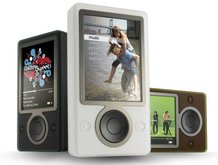7 brilliant tech ideas that completely flopped
Ideas that were great on paper but got dumped in the fail bin

Brilliant ideas don't always lead to brilliant results - we saw that with Betamax. But such technofail isn't just confined to the annals of time - it's still with us, eating away at the ideas that should have worked but just fell away.
So after an office discussion about HD DVD, the Sinclair C5 and Nokia Ngage we decided it was time to celebrate a bunch of great but lesser known tech flops. A couple might supposedly still be alive, but they might as well be dead. Fine on paper, but already falling towards failure, just like the rest.
1. Wireless USB
Someday wireless peripherals may become a reality. It's a good way to get rid of some cable clutter around your desk and promote the use of even more USB gadgets. But Wireless USB has been simply too expensive to be a success. Oh, and USB cables require no drivers, no training and are ten-a-penny - they are so ubiquitous you can find them for sale at airports. Only a few companies – including the beleaguered Belkin, who fought a firestorm of criticism over the paid-for reviews scam – have released any products that actually work. Wireless USB's chance has already passed, and it'll take a second version with some extra perk - such as a speed boost - as well as universal out-of-the-box support for any derivative version to succeed.
2. Speaking to your PC
We should all be talking to our computers by now, dictating memos and getting into arguments over world politics with them. Microphone technology is advanced enough for clear voice detection, and technology such as the car-based Microsoft Sync prove that speech recognition can work. The problem is that the processing required for really accurate speech recognition - not just guessing at the word, but always getting it right - would require several data centres to interpret and then convert the spoken words. No one has signed up to take on that challenge, not even TellMe, the company that powers Sync.
3. Fold-away keyboards
Here's a brilliant idea that should work, except for the pesky problem of ergonomics. A roll-up or fold-away keyboard would allow you to bring only a mini-notebook on trips and skip the laptop. Unfortunately, to type fast on a keyboard, your fingers must be positioned for the most comfort, able to move freely across well spaced and raised keys. A roll-up or fabric keyboard might be highly portable and makes sense for those who want to type longer documents or emails on a smartphone or on an airplane in a cramped space, but the form factor is just not good enough.
4. Internet voting
Placing your finger on a pad at a voting kiosk makes sense - and processing the vote in a data centre would certainly be more accurate than counting them by hand. After the elections of 2000 in the US, you'd think internet voting would be a reality by now. Yet, voting requires a high-degree of reliability and trust. Biometrics, or the use of technology to confirm the identity of a human, is now a commonplace feature on laptops, but not on desktops and other hardware. Another issue with internet voting is securing the connection, not only from the terminal to the data centre but making sure the voting record is held in long-term storage with encryption and authentication.
5. Micropayments
A few years ago, micropayment services were all the rage. The idea is to fill up an account by paying, say, £10 or so and then using the service to buy small items such as postage stamps or one audio file. While the idea is sound, and the technology is more than possible (PayPal has proved this for years), it's the business model that doesn't quite work. Companies are essentially taking a small fee to process even smaller transactions. Consumers, for their part, are also unclear about the advantages when they know they can always buy a single MP3 file on iTunes with a credit card. Fail.
Sign up for breaking news, reviews, opinion, top tech deals, and more.

John Brandon has covered gadgets and cars for the past 12 years having published over 12,000 articles and tested nearly 8,000 products. He's nothing if not prolific. Before starting his writing career, he led an Information Design practice at a large consumer electronics retailer in the US. His hobbies include deep sea exploration, complaining about the weather, and engineering a vast multiverse conspiracy.